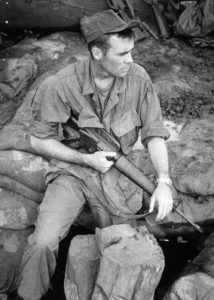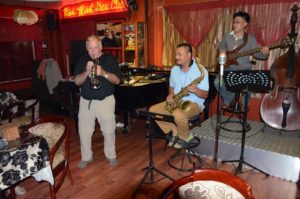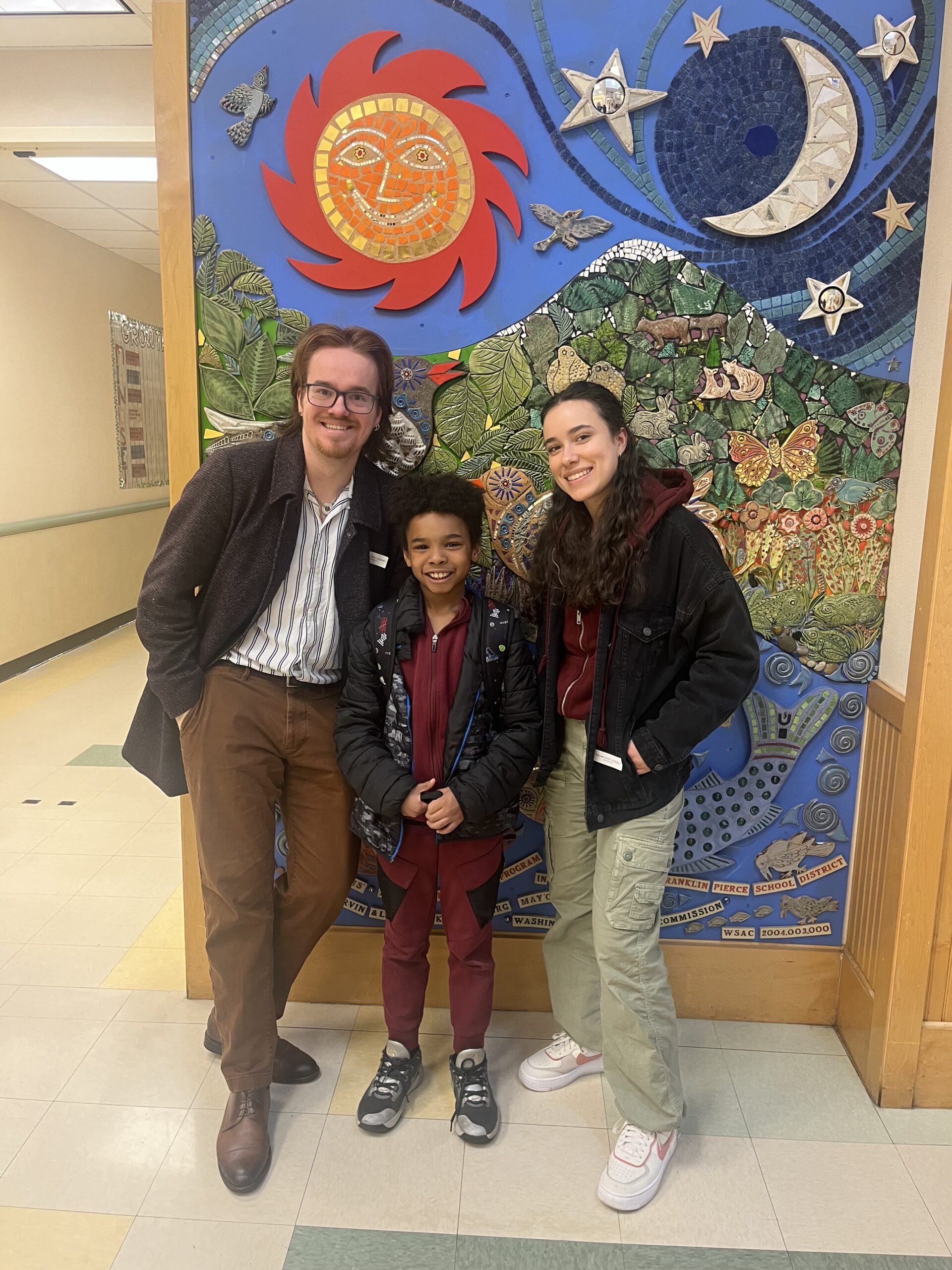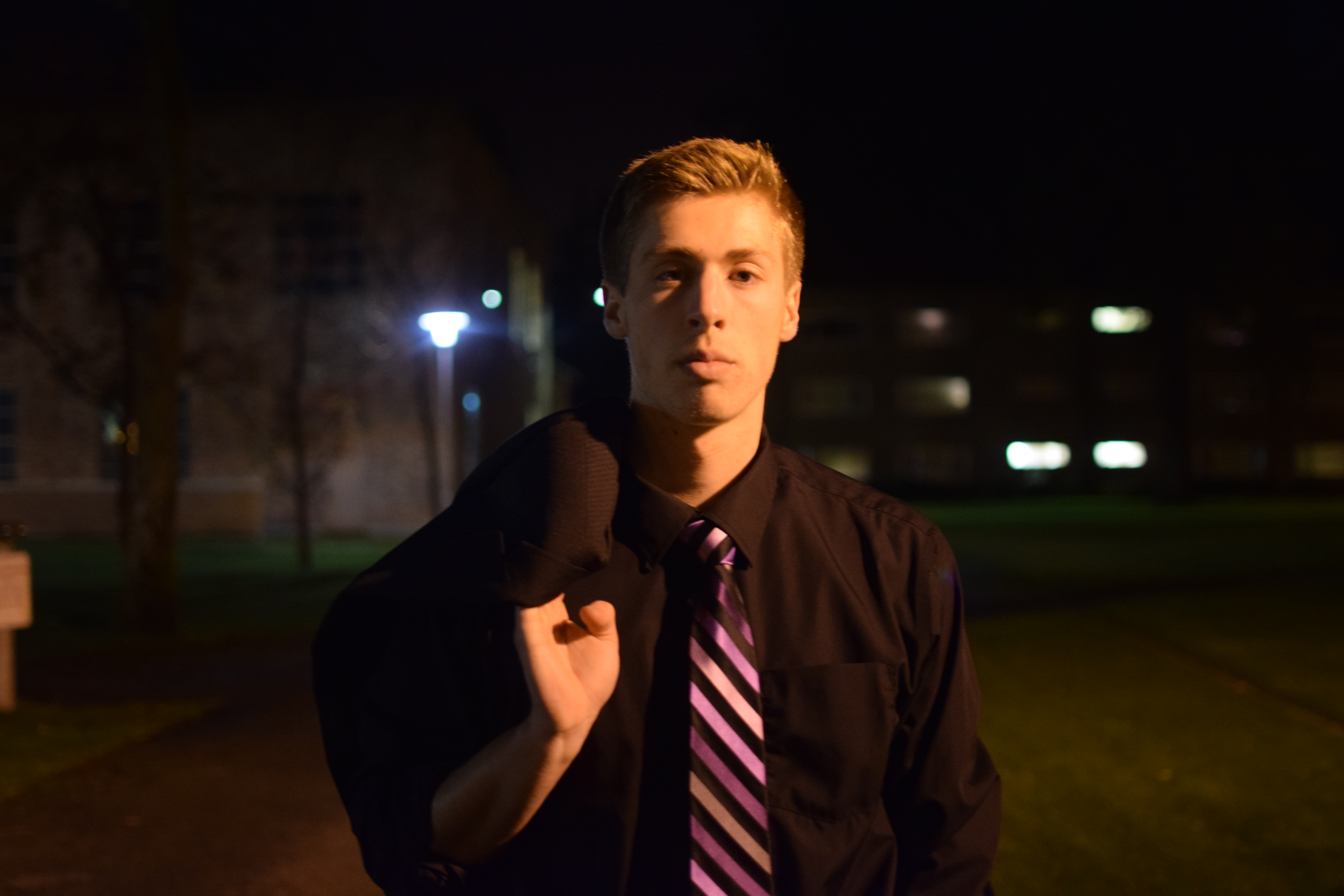
By Olivia Crocker
Copy Editor
“I am the last Renaissance man – I’m a writer, photographer, musician and a very poor painter.”
This quote from a 2014 interview with J.M. Simpson of Military Northwest perhaps best captures the prolific nature of Pacific Lutheran alumnus Richard Baker.
As a young man just out of high school, Baker knew his chances of being drafted to serve in Vietnam were incredibly high. Named in high school as the best trumpeter in Washington State, he planned to enlist in the army band to avoid combat and Vietnam altogether. Two weeks after basic training, he was in Vietnam setting up an ambush, and nowhere near a trumpet. “They used us where they needed us.”
To be drafted would have meant two years of service, but to enlist as he did meant three. “I had to go to Vietnam anyway for three years rather than two because I tried to avoid it.” He sustained two injuries in the war, and returned home with PTSD that he has since been working to overcome. These personal details, among many others, are seen throughout his writing. His characters share many of his experiences.
“Most everything I write about is military centered… you write what you know.”

PLU alum during his time serving as a US soldier in Vietnam.
After serving his time, Baker worked as a musician, touring with various jazz bands. When the time came for his family, he put down his trumpet and went back to school. With a wife and two children, he earned his BA in English and Philosophy here at PLU while supporting his family. He would attend class in the morning, take additional courses in Seattle, and finally work at the freight dock at midnight. He kept up this pace and was able to graduate in one year.
Baker cites the education he recieved at PLU as one of many sources of inspiration for him in his writing. For example, legends he learned in religion courses at the school have been subtly woven throughout his works. “I didn’t come to school to just get a piece of paper, I came to actually learn the stuff.” As for those sneaky references, he said, “I’m always hoping some professor out there will notice.”
Baker noted with a chuckle that Veterans Affairs, who paid for his education, wanted to ensure he’d be able to get a job with his degree. They sent him back to school to receive a teaching certificate, which came in handy later in life. He taught at Curtis Junior High School in University Place for eighteen years.
In an effort to address his PTSD, Baker has returned to Vietnam many times, paving over the old memories with new ones of friendship and hospitality. Baker commented that in the culture of Vietnam everyone is considered and referred to as family. Your friend becomes your brother. This attitude leads to a remarkable sense of hospitality and service to one another.
Drawing on his own varied experiences in Vietnam, Baker’s novels present a picture of the country that the Vietnamese themselves appreciate.
“What the Vietnamese like about my books, is I write equally from both sides without taking a stance.” Baker presents the story as it is, and leaves the opinion forming to his readers. “[The Vietnamese] haven’t seen anything so level-headed.”
They appreciate his writing so much that he became the first American author to have a historical fiction novel published in the country.
Baker doesn’t feel the need to distort history to make it interesting. In fact, his novels are so historically accurate that one has been accepted as history by the French Foreign Legion.
While his novels are not primarily political, there is still one idea Baker tries to get across in his books. While the soldiers may be the ones fighting, it is the governments and not the people who are responsible. He spoke about this understanding between soldiers of the war, regardless of who they fought for.
“Soldiers have a club among themselves. They didn’t want to have a fight, and we didn’t want to have a fight.”
When he isn’t writing his more serious works, Baker writes under a different name, one with a humorous origin.
Wrigley Brogan is the name under which Baker experiments with his detective books. Drawing inspiration from an old slang term for detectives, “gumshoe,” Baker built his pseudonym around the gum brand Wrigley, and the shoe brand Brogan. As such, Wrigley Brogan, the author of detective stories, becomes “gumshoe.” He chuckled at that, and added that he enjoys sneaking that sort of humor throughout his books.
When asked about the influence music has had on his writing, Baker described,
“my writing is very musical. Always when I write, I hear music. I hear it in the words.”
He performs the trumpet in Vietnam to this day, an experience which he says is greatly improved by the reality that very few trumpet players have been in the country where saxophone is much more popular. They always appreciate what he has to offer. “They don’t know what a trumpet player is supposed to sound like, so it’s always a good time.”

Richard Baker playing his trumpet.
His trumpet still sits in his workspace, where he alternates between writing, playing, and editing his photography. For a man with a self-proclaimed short attention span, his creative output is staggering. Baker has published a multitude of books. He has numerous publications in magazines, journals, and other mediums. He has earned a number of literary and photography awards, including being named the World Boxing Board Journalist of the Year in 1999.
Baker’s books are available through Amazon.




















